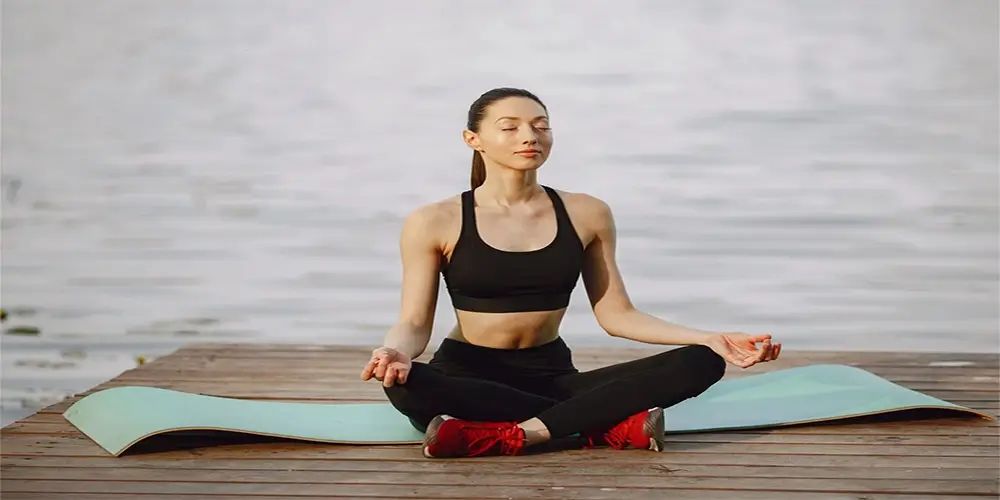

Incorporating Meditation into Your Daily Routine: Tips and Strategies
22/06/2024 Sandra Petric 2988
Meditation is a powerful practice that can significantly enhance your mental, emotional, and physical well-being. However, like any new habit, incorporating meditation into your daily routine can be challenging. This blog provides practical tips and strategies to help you set realistic goals and expectations, make meditation a habit, explore the benefits of meditating with others, and utilize technology and apps to support your meditation practice.
Setting Realistic Goals and Expectations
Start Small and Build Gradually
When beginning a meditation practice, it's essential to set realistic goals. Expecting to meditate for long periods from the start can be overwhelming and counterproductive.
-
Begin with Short Sessions: Start with just 5-10 minutes of meditation each day. This manageable duration helps you establish the habit without feeling overwhelmed.
-
Gradually Increase Time: As you become more comfortable, gradually extend your meditation sessions by a few minutes each week. Aim for a duration that feels sustainable and beneficial for you.
Understand the Purpose of Meditation
Having a clear understanding of why you want to meditate can help you stay motivated and committed.
-
Identify Your Goals: Whether you're seeking stress relief, improved focus, emotional balance, or spiritual growth, identifying your goals will provide direction and purpose.
-
Embrace the Process: Remember that meditation is a journey, not a destination. Be patient with yourself and embrace the process without being overly focused on specific outcomes.
Making Meditation a Habit
Create a Routine
Incorporating meditation into your daily routine involves creating a consistent practice that fits seamlessly into your life.
-
Choose a Regular Time: Find a time of day that works best for you and stick to it. Many people find that meditating in the morning sets a positive tone for the day, while others prefer to unwind with meditation in the evening.
-
Link to an Existing Habit: Pairing meditation with an existing habit can help reinforce the practice. For example, meditate right after brushing your teeth or before going to bed.
Designate a Meditation Space
Having a dedicated space for meditation can enhance your practice by providing a sense of tranquility and focus.
-
Quiet and Comfortable: Choose a quiet spot where you won’t be disturbed. Make sure it's comfortable, whether you prefer sitting on a cushion, a chair, or even lying down.
-
Personal Touches: Add elements that make the space inviting, such as candles, incense, cushions, or inspirational objects. These can help create a calming atmosphere conducive to meditation.
Stay Consistent
Consistency is key to making meditation a lasting habit.
-
Set Reminders: Use reminders or alarms to prompt you to meditate at your chosen time. Consistent practice helps reinforce the habit and makes it easier to maintain.
-
Be Flexible: Life can be unpredictable, so be flexible and willing to adjust your meditation time if necessary. The goal is to maintain a regular practice, even if the timing varies.
Meditating with Others or in a Group Setting
Benefits of Group Meditation
Meditating with others can provide additional motivation, support, and a sense of community.
-
Shared Energy: Group meditation sessions can amplify the collective energy, making the experience more profound and powerful.
-
Accountability: Being part of a meditation group creates a sense of accountability, encouraging you to maintain your practice.
Finding a Meditation Group
There are various ways to find a meditation group that suits your preferences and schedule.
-
Local Meditation Centers: Many cities have meditation centers or yoga studios that offer group meditation sessions. These centers often provide guided sessions, which can be beneficial for beginners.
-
Community Groups: Look for community groups or clubs that focus on meditation. Libraries, community centers, and wellness centers often host meditation groups.
-
Online Communities: If local options are limited, consider joining online meditation communities. Virtual meditation groups and guided sessions can be just as effective and offer the convenience of practicing from home.
Using Technology and Apps to Support Your Meditation Practice
Meditation Apps
Technology can be a valuable ally in establishing and maintaining a meditation practice. Numerous apps offer guided meditations, mindfulness exercises, and other resources.
-
Headspace: Known for its user-friendly interface and extensive library of guided meditations, Headspace is suitable for beginners and experienced meditators alike. It offers themed courses and single sessions tailored to various needs, such as stress relief and sleep improvement.
-
Calm: Calm provides a wide range of guided meditations, sleep stories, and breathing exercises. Its soothing visuals and sounds create a relaxing environment for meditation.
-
Insight Timer: Offering thousands of free guided meditations from teachers around the world, Insight Timer is a versatile app that caters to all levels. It also includes features like a meditation timer and community groups.
Using Technology Mindfully
While technology can enhance your meditation practice, it’s essential to use it mindfully to avoid becoming overly reliant on it.
-
Set Intentional Goals: Use meditation apps with specific goals in mind, whether it’s to learn new techniques, follow a guided session, or track your progress.
-
Limit Screen Time: Be mindful of screen time before and after meditation. Ensure that technology supports your practice without becoming a distraction.
-
Balance Guided and Silent Meditation: While guided meditations are beneficial, try incorporating silent meditation sessions to cultivate self-reliance and deepen your practice.
Incorporating meditation into your daily routine is a journey that requires patience, commitment, and flexibility. By setting realistic goals and expectations, creating a consistent practice, exploring group meditation, and leveraging technology, you can build a sustainable meditation habit that enhances your overall well-being. Remember, meditation is a personal journey, and there is no one-size-fits-all approach. Find what works best for you, be patient with yourself, and enjoy the transformative benefits that meditation can bring to your life.
Recent Blogs
Building a Diversified Inves ...
26/01/2025 1833
Integrating AI and Machine L ...
24/01/2025 1394
Health Insurance Regulations ...
22/01/2025 2448
Recognizing Signs of Mental ...
20/01/2025 2473
Understanding Employers' Leg ...
18/01/2025 1412
Trending Blogs
Interest Rates: How They Aff ...
20/06/2024 12712
Client Retention: Building S ...
20/06/2024 10761
Introduction to Common Law: ...
21/06/2024 9828
Common Types of Criminal Charges
02/03/2024 8997
Corporate Finance Law: Raisi ...
04/06/2024 8727










